All Stories
-
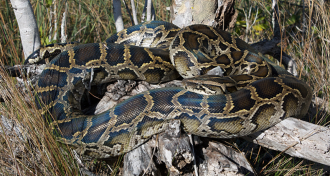 Ecosystems
EcosystemsEven fast-breeding rabbits can’t withstand Everglades python invasion
Even marsh rabbits in the Everglades can’t breed fast enough to keep their population going when Burmese pythons warm up for summer hunting.
By Susan Milius -
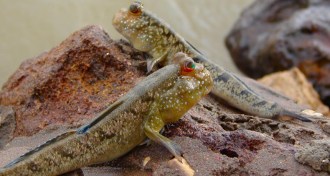 Animals
AnimalsMudskippers use watery tongue to slurp up snacks on land
When mudskippers move from water to land, they use a tongue made of water to move food to the back of their throat and into their stomachs.
-
 Math
MathP value ban: small step for a journal, giant leap for science
Peer-reviewed journals have largely insisted on P values as a standard of worthiness. But now the editors of one journal have banned the statistical tool.
-
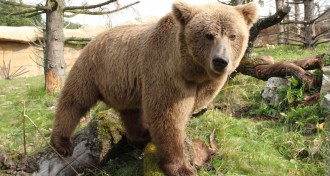 Animals
AnimalsEvidence of ‘yeti’ probably came from a Himalayan black bear
Last year, a genetic analysis revealed two hairs from an unknown species of bear in Asia. A new study finds that they belong to rare Himalayan black bears.
-
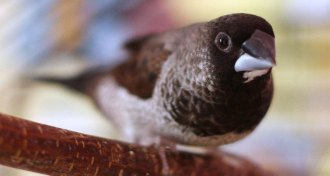 Life
LifeFinches can pass H7N9 bird flu to chickens
In laboratory experiments, society finches spread H7N9 into water when they drank, infecting chickens and quail that drank the same water.
-
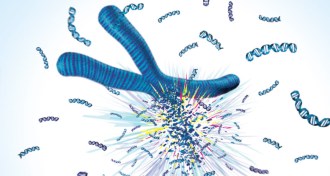 Genetics
GeneticsThe upside of a demolished chromosome
A woman’s rare genetic disease was cured when a chromosome carrying the mutant gene shattered.
-
 Health & Medicine
Health & MedicineAspirin, other painkillers may not reduce colorectal cancer risk for everybody
Aspirin and NSAIDs appear widely protective against colorectal cancer, but not for everyone.
By Nathan Seppa -
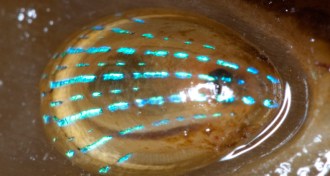 Animals
AnimalsSnail shell creates blue iridescence with mineral
Mollusk shines blue using calcium compound rather than organic molecule.
-
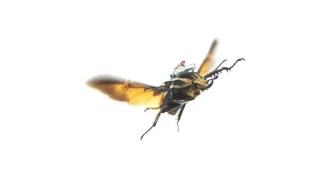 Life
LifeCyborg beetles reveal secrets of insect flight
Remote controlled beetles swoop to the rescue in insect flight simulations.
-
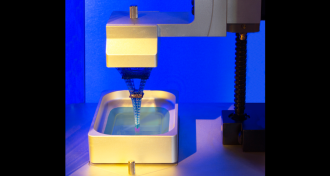 Chemistry
ChemistryNew method leaves older ways of 3-D printing in its goopy wake
Finding the sweet spot in a pool of resin, chemists can create detailed 3-D objects faster than 3-D printers.
By Beth Mole -
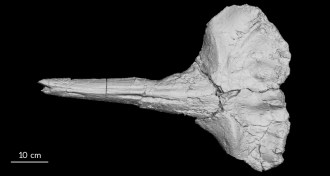 Paleontology
PaleontologyRise of East African Plateau dated by whale fossil
A whale fossil is helping to pinpoint when the East African Plateau started to rise and how the uplift played a role in human evolution, scientists say.
-
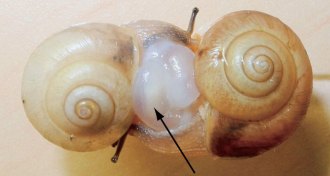 Animals
AnimalsGetting stabbed is no fun for land snails
When hermaphroditic land snails mate, they stab each other with “love darts.” But being darted comes at a price, a new study finds.